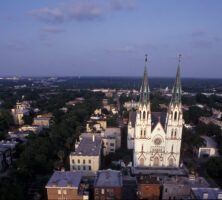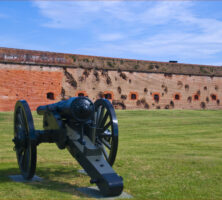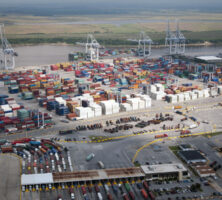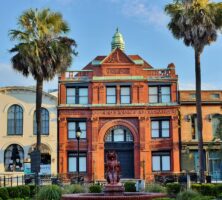Chatham County is the northernmost of Georgia’s six coastal counties. Named for William Pitt the Elder, earl of Chatham, it was formed out of Christ Church Parish and St. Phillip Parish in 1777.
It is the fifth oldest county in Georgia and is the home of Savannah, which serves as the county seat. Other incorporated towns include Bloomingdale, Garden City, Pooler, Port Wentworth, Thunderbolt, Tybee Island, and Vernonburg. In addition to Tybee Island, the islands of Little Tybee, Wassaw, and Little Wassaw fall within Chatham’s borders. Situated between the Savannah River and the Ogeechee River, Chatham County is bordered by Effingham County, Bryan County, and the state of South Carolina. On the coast, Chatham County shares St. Catherines Sound with Liberty County.

Although Georgia was originally planned as a colony with no enslaved people, Savannah and Chatham County became a port for the importing of enslaved people after 1750. The port of Savannah was also used to ship cotton, naval stores, and other trade goods.
Chatham County was occupied by the British in 1778, during the American Revolution (1775-83). In October 1779 the British successfully defended Savannah from the colonial and French armies during the Siege of Savannah. After the war Chatham County grew in population along with Savannah, which became one of the South’s most important ports. During the Civil War (1861-65), Chatham County became an important center of trade for the Confederacy, as the multitude of creeks and rivers in the area made the total blockade of the port of Savannah difficult for the Union. Other than the brief attack on Fort Pulaski in April 1862, and a minor skirmish on Whitmarsh Island, the war bypassed Chatham County until the very end, when Union general William T. Sherman occupied the area in December 1864 at the conclusion of his march to the sea. Sherman issued his famous “Forty Acres and a Mule” Field Order No. 15 here on January 16, 1865.

Modern Chatham County is an important industrial and transportation center. Major companies like International Paper and Kerr-McGee have plants in the county. The Savannah–Hilton Head International Airport serves both coastal Georgia and South Carolina and is home to Gulfstream Aerospace Corporation. The Savannah River ports of Savannah and Garden City, operated by the Georgia Ports Authority, and Port Wentworth service ships from around the world, handling more than 2,000 different ships in 2002. Tourism has become a major industry in the Savannah-Chatham area as well. The annual St. Patrick’s Day parade through the historic district is one of the largest such events in the United States. The summer months attract visitors to Tybee Island, which has one of the few public beaches in Georgia. The city of Savannah has become a popular location for Hollywood filmmaking. Many movies and television shows have been shot there, including Midnight in the Garden of Good and Evil (1997).
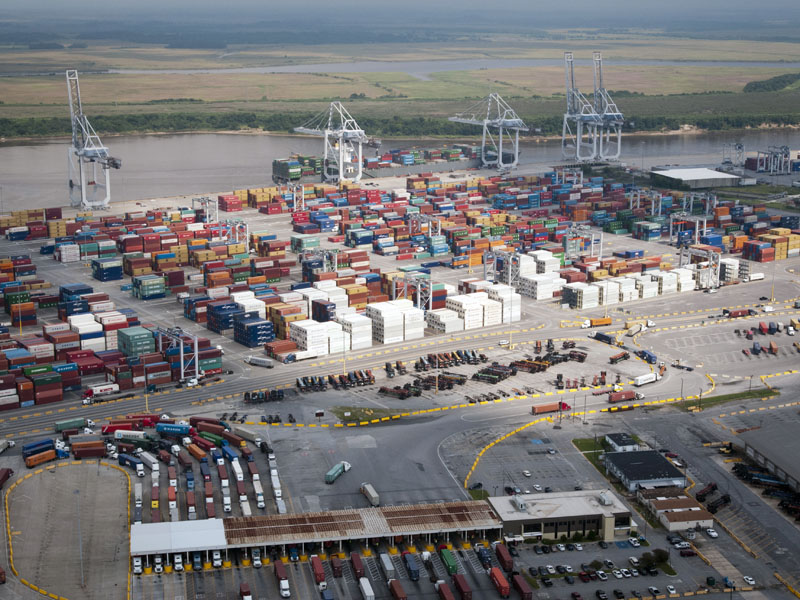
In 1912 Juliette Gordon Low established the nation’s first Girl Scout troop in Savannah.
According to the 2020 U.S. census, the population of Chatham County is 295,291, an increase from the 2010 population of 265,128.













